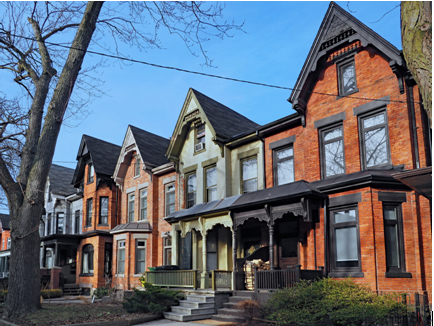
Housing Demand Continues To Outstrip Supply in 2020
Tags: HOUSING DEMANDS, 2020, REAL ESTATE
Recent national sales trends have improved by more than expected over the second half of 2019 while new listings have fallen. These trends have caused many housing markets to tighten particularly in the GTA, which has lowered the inventory of available homes considerably. In November 2019, the measure of the balance between supply and demand hit its lowest level since 2007. This has resulted in increased competition among buyers for listings leading to price gains. All reports are showing that these trends will continue through 2020. Additionally, the Federal Government launched its First-Time Home Buyer Incentive earlier this year. Under the $1.25 billion shared equity program, the federal government contributes a portion of the home purchase price in exchange for an equity share of the home’s value. This means more first time buyers will be eligible to purchase a home this year further increasing demand.

The number of homes available for sale in Ontario, BC, and Quebec, which represents over 80% of national activity is at a 15-year low. The average time a home sits on the market is also at a 15-year low just 0.1 months above the lowest level on record. This will support solid home price growth in 2020, particularly if current trends intensify. National home sales are projected to recover representing a 6.2% increase from the five-year low recorded in 2018. Forecast predict a 40,000+ sales increase for 2020, British Columbia and Ontario are expected to contribute close to an additional 15,000 transactions each.
Policy changes in Ontario related to the Ontario Municipal Board (OMB) and the creation of the Local Planning Appeal Tribunal (LPAT) will give municipalities more power when approving developments. Before these changes it was common that the City of Toronto would reject a development over concerns of height, density, or shadowing. The developer was then able to appeal this decision to the OMB. It was common the OMB would override the City’s decision if they believed the development was consistent with existing municipal and provincial policy, often infuriating local resistends. The creation of the LPAT significantly limits the power of the OMB and empowers city council. This ensures the opinions and concerns of local residents are considered more when a development application is being decided upon. However, this also means more decisions will be made based on NIMBY or not in my backyard objections. This will likely result in fewer or less dense developments being approved across the city further reducing new housing supply. All these trends and policy changes point to increased demand and less supply ensuring stability in average home prices across the GTA.
















